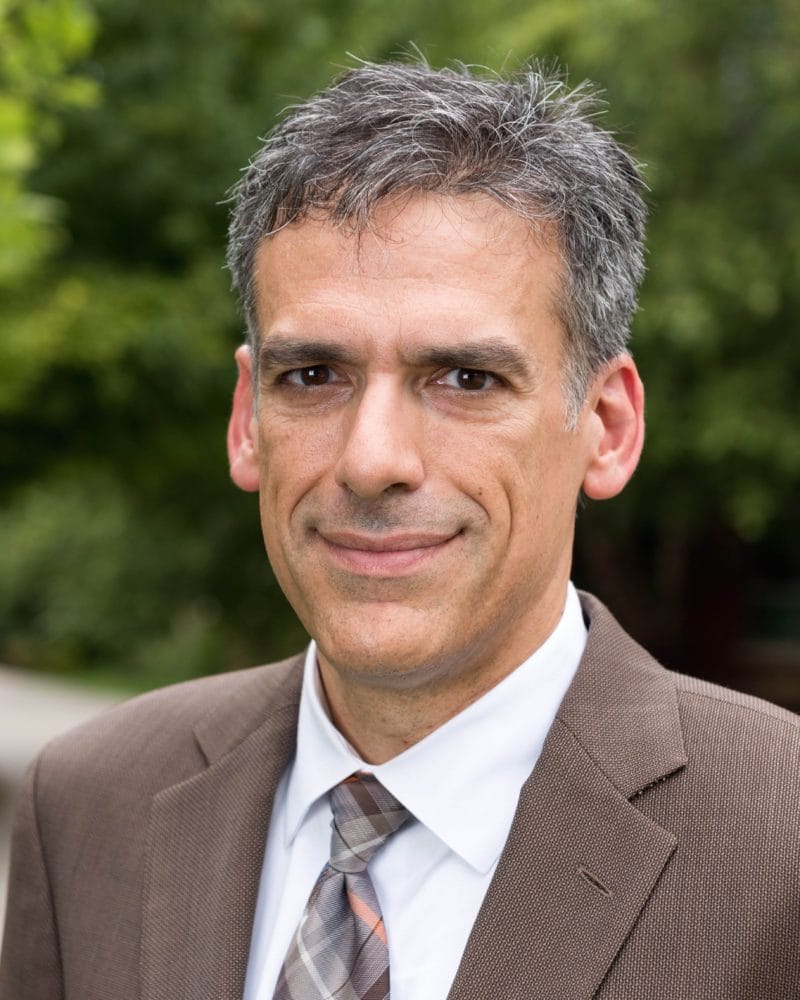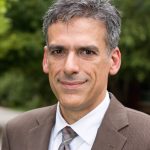About the Seminar
The nanoparticles we make today to address problems in energy and human health will enter the environment tomorrow. Will they be benign or will they lead to deleterious downstream effects to our environment? Will those impacts change as the nanoparticles are transformed through their interaction with organisms or the environment? This presents a need for developing and benchmarking design principles for sustainable nanoparticles, and it is is being addressed, in party, by the Center for Sustainable Nanotechnology. [ACS Central Science 1, 117 (2015)] Our group contributes to that effort by advancing theoretical and computational frameworks to bridge across molecular scale structure and motion, and the behavior of nanoparticles in complex environments at macro and meso scales. [J. Phys. Chem. B 120, 7297 (2016) and [ACS Central Science 7, 1271 (2021)] The latter includes the contact of nanoparticles with model membranes and other constituents found in the cellular matrix. Our toolkit includes molecular dynamics, enhanced sampling, nonequilibrium statistical mechanics, coarse-graining, and machine learning. We will describe the spiral feedback between simulation and experiment that we are employing to design principles for creating devices optimized for high performance and minimal environmental impact.
About the Speaker
Dr. Rigoberto Hernandez is the Gompf Family Professor in the Department of Chemistry at the Johns Hopkins University, and the Director of the Open Chemistry Collaborative in Diversity Equity (OXIDE). He is also a Professor in the Departments of Chemical and Biomolecular Engineering, and Materials Science and Engineering at Johns Hopkins University. Before joining Hopkins in 2016, he was a Professor in the School of Chemistry and Biochemistry at Georgia Tech for 20 years. He was born in Havana, Cuba and is a U.S. Citizen by birthright. He holds a B.S.E. in Chemical Engineering and Mathematics from Princeton University (1989), and a Ph.D. in Chemistry from the University of California, Berkeley (1993). He is a theoretical and computational chemist who originate the field of chemical dynamics in complex environments (through a biennial Telluride Workshop since 2001). Applications include colloidal suspensions, sustainable nanotechnologies, protein folding and rearrangement, autonomous computing machines, and energetic formulations. His group’s research is presently supported by the NSF, the DOE and the Sloan Foundation.
Dr. Hernandez is the recipient of a National Science Foundation (NSF) CAREER Award (1997), Research Corporation Cottrell Scholar Award (1999), the Alfred P. Sloan Fellow Award (2000), a Humboldt Research Fellowship (2006-07), the ACS Award for Encouraging Disadvantaged Students into Careers in the Chemical Sciences (2014), the CCR Diversity Award (2015), the RCSA Transformative Research and Exceptional Education (TREE) Award (2016), the Herty Medal (2017), the Stanley C. Israel Regional Award for Advancing Diversity in the Chemical Sciences (2018), and the RCSA IMPACT Award (2020). He is a Fellow of the American Association for the Advancement of Science (AAAS, 2004), the American Chemical Society (ACS, 2010), the American Physical Society (APS, 2011), and the Royal Society of Chemistry (FRSC, 2020). He was a Phi Beta Kappa Visiting Scholar in 2015-2016. He previously served as the District IV Director on the American Chemical Society Board of Directors (2014-2019). He currently serves on the Sloan MPHD Advisory Committee (since 2013), the Chair-Elect of the APS Division of Chemical Physics, and as the Chair of the AAAS Committee on Opportunities in Science (COOS, 2022-2024).



